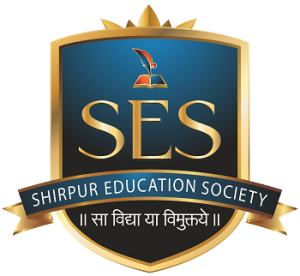|
The College, being run by Shirpur Education Society, Shirpur efficiently works upon the quality guidelines of the meticulously planned strategies of the Management. It looks after the five major areas and the values as directed by the NAAC, UGC, and MHRD. Hence, running in this line the College finds its distinctiveness in its consistent efforts in nurturing quality culture on college campus through strengthening of its faculty. The College follows the faculty evaluation system every year. It has prepared and implemented Institutional API on its own seeking primary and essential guidelines from the UGC API system. It includes following components-
Teaching, Learning, and Evaluation:
- Teaching workload including theory and practicals, research guidance etc
- Performance in engaging lectures / practicals/ tutorials /administrative load/ research supervision/project guidance
- Performance in attendance of students
- Performance in results
- Lectures and academic duties in excess of UGC norms
- Preparation of study material and resources
- Innovative teaching learning methods
- Students feedback
- Examination related work
Curricular, Co-curricular, Professional Development
- Student related co-curricular, extension and field based activities
- Contribution to corporate life and community work
- Community work
- Administrative and academic
- Professional development activities
Research Contribution: Presentations and Publications
- The college always looks forward in promoting research culture among the staff and students. There are following key aspects which make the College prioritize research among all other services and activities.
- The College Management regularly holds meetings during every academic year with the teaching staff and form one-to-one dialogue with the faculty member regarding his/her research in M.Phil./Ph.D., and Minor and Major research projects.
- The College Management offers incentives to the teaching staff in pursuing research.
- The Management promotes research among college staff members by framing the Institutional API allotting separate component to faculty research contribution. It includes papers in journals/ proceedings, books, edited books/journals, organizing conference/workshop/seminar etc., patent, M.Phil/ Ph.D. awards as researchers and research supervisors, etc. This API has been in practice for past 10 years. The API system as a part of PBAS (Performance Based Appraisal System) is different in its form and structure from the UGC prescribed API format.
- This initiative in research contribution being made as a mandatory criterion in faculty academic evaluation enabled teachers to contribute to the minimum scores to maintain the academic performance. Hence, research contribution by each faculty member promotes research development at the individual level and also to make it at large at the institutional level.
- Every academic year, about fifty research papers, a few books are published in reputed refereed/non-refereed, Impact Factor UGC listed journals, UGC care list journals and books with ISBN numbers.
- As per the parent University guidelines, the College has established Research Advisory Committee to monitor the research activities of the Ph.D registered candidates with the College teachers as research supervisors.
- Minor research projects and Vice Chancellor’s Research Motivation Scheme sanctioned research projects have been the regular activity among the teaching staff.
- The College has established a Research committee. Meetings of the committee are organized to promote research.
|

